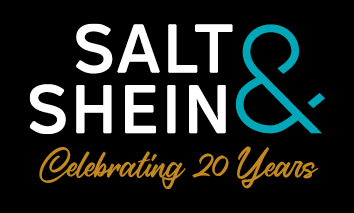How to manage risk and reputation
Benjamin Franklin was right on the money when he said “It takes many good deeds to build a good reputation, and only one bad one to lose it”. Ask any senior corporate affairs professional and they will reveal how reputation management is a carefully planned strategy, which takes significant time and effort to develop. What…
Benjamin Franklin was right on the money when he said “It takes many good deeds to build a good reputation, and only one bad one to lose it”.
Ask any senior corporate affairs professional and they will reveal how reputation management is a carefully planned strategy, which takes significant time and effort to develop.
What is a crisis?
Authors Robert Eccles, Scott Newquist and Roland Schatz in their book Reputation and Its Risks talk about how organisations face risks from a wide range of factors from commodity prices to natural disasters and everything in between. Each issue requires detailed guidelines for assessing the gravity of the crisis and deal with the risks associated with it.
Thus, it is important to constantly manage perception so in the event of a crisis the company’s market standing does not take a blow. As a first step organisations need to understand the extent to which a company is exposed to reputational risk.
In fact, the authors suggest there are three factors that determine the reputational threats an organisation faces – these are: reputation-reality gap, changing beliefs and expectations and the level of internal coordination.
Why is it important to use reputation as a yardstick?
Overlooking reputation as a performance indicator is a grave threat.
According to global consulting company Deloitte, a survey of 1,100 executives indicated that brand value was not high on their list of concerns.
The results revealed that only 24 per cent of participants formally measure and report on brand value. In addition to this less than 22 per cent thought it was possible that negative information about their reputation would show up on social media in the next twelve months.
Deloitte Consulting’s principal and author of the book Brand Resilience: Managing Risk and Recovery in a High-Speed World Jonathan Copulsky says social media is exposing companies to all sorts of risks and now is the time to look at coming up with updated guidelines.
“In a world filled with intentional and accidental brand saboteurs, companies need to aggressively play defence as well as offence. Brands are under constant attack, and brand stewards must systematically understand the risks that their brands face, the potential impacts and the options for managing these risks,” he adds.
How to manage reputational risk
Deloitte recommends three steps to manage risk. These are as follows:
Step 1 – The discovery phase: Start by conducting in-depth interviews of the C-suite executives. This helps identify the key stakeholders of an organisation.
Step 2 – Engage the stakeholders: Now is the time to start talking to stakeholders to gain an “outside-in” perspective – this will lead to insights that will help bridge gaps between how the company wants to be perceived and how it is actually looked at by the market.
Step 3 – Anticipate, analyse and action: At this point the company should be ready to assess which threats is it exposed to, analyse the initiatives that expose it to risk and based on this choose an appropriate course of action to mitigate the risk.
Going back to the Benjamin Franklin quote, remember after all is said and done it takes just a single wrong move to destroy the hard work of an entire team.
Discover insights.
Creating messages that cut through social media, news cycles and even the humble inbox has never been easy, but, with more noise across more channels, it’s become more important than ever to create messages that stand out and land with impact. Visual communications tools are gaining traction as a way of shaping messages that hit…
Looking for greater choice in the contract options available to you? Having history and rapport with a specialist recruiter like Fraser Clapcott will open doors to opportunities you may have missed for yourself, that add value for both contractor and employer. In the current climate of uncertainty, a willingness and propensity for flexibility comes with…
If you’ve been ruminating on changing-up your comms career, now may be the ideal time to talk with your trusted recruiter about making a move. Salt & Shein Director, Lucy Newcomb, sees significant scope for motivated communicators to broaden their career horizons, and make the job of their dreams a reality, in 2023. “A rapidly…







